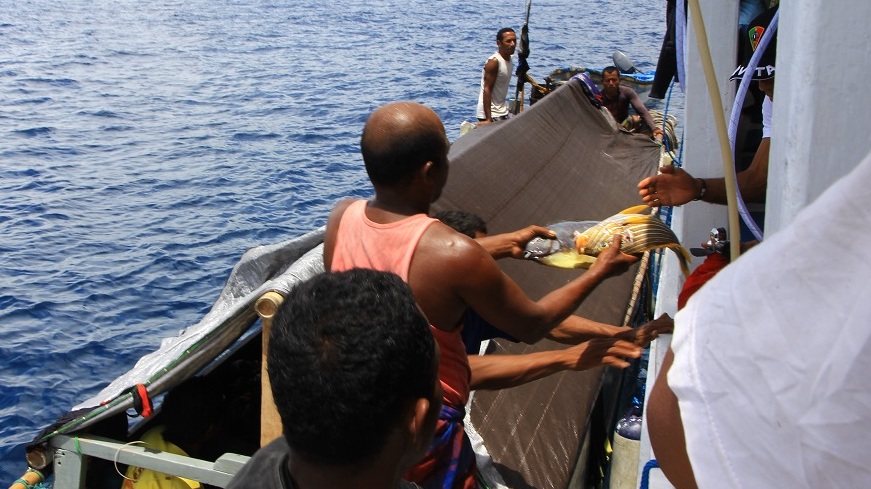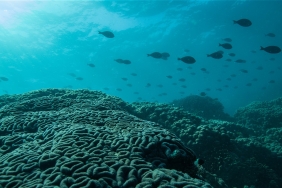INCREASING THE SELLING VALUE OF ENVIRONMENTALLY FRIENDLY FISHERY PRODUCTS WITH GROUPER - SNAPPER FILLET TRAINING IN THE FISHERMEN'S COOPERATIVE OF TIMUR JAYA
By: Fransiska Sonya Puspita (Capture Fisheries Assistant)
The demand for environmentally friendly fishery products is increasing. This is reinforced by the results of a survey conducted by WWF-Indonesia with Nielsen Survey in 2017, where 63% of Indonesian consumers are willing to buy environmentally friendly products at a higher price. The demand for environmentally friendly products also occurs in processed seafood commodity products, such as fish fillets. Fish fillets are practical and economical, making consumers more inclined to buy than the whole product.
In the view of Tia Soviana, Quality Control of Fish 'n Blues, consumers currently need processed seafood products that are ready to eat. "On average, our customers in Jakarta need ready-to-use fish products without the hassle of cleaning the fish," she explained. Fish 'n blues as a provider of environmentally friendly processed seafood products also plays a role in meeting consumer demand for this. To continue the availability of environmentally friendly fishery commodities, it is necessary to start by increasing the capacity of fishermen in the field.
As one of the cities producing grouper - snapper commodities, Probolinggo City also has high potential for capture fisheries. It was recorded that the total production of grouper reached 83.564 tons and 614.979 tons for snapper during one quarter (Fisheries Service, 2018). This makes grouper - snapper a popular commodity in Probolinggo City, so in February 2017, WWF-Indonesia together with the Fisheries Service of Probolinggo City conducted training on Better Management Practices (BMP) for captured grouper - snapper at the Nelayan Timur Jaya (NTJ) Cooperative. From the results of the BMP training, it is known that the implementation of BMP compliance has reached 83.2 where the organization and institution of the cooperative is one of the things that still needs assistance. On the occasion, the Office of Cooperatives, Micro Enterprises, Trade and Industry (KUMPP) of Probolinggo City also stated that the administrative system and financial management of cooperatives also need to be improved.
As an assisted cooperative, NTJ cooperative fishermen have been selling environmentally friendly seafood products in whole form (whole product) to Fish 'n Blues. So to increase the capacity of fishermen to sell more varied seafood products, it is necessary to conduct training on the grouper - snapper fillet process.
On December 18, 2017, the Fisheries Service of Probolinggo City together with WWF Indonesia and Fish 'n Blues collaborated with SMKN 4 Probolinggo to conduct training on grouper snapper fillet process to NTJ Cooperative at SMKN 4 Probolinggo. The training, which was attended by fishermen members of the NTJ Cooperative, the KUMPP Office of Probolinggo City and Fisheries Extension Officers, was a success. Participants were given material on the process of making fish fillets and how to process the waste generated from the fish fillet process. In addition, participants were also invited directly to practice how to make fish fillets.
The provision of material and practice of making fish fillets was guided by Novita Sari Biafri, S. St.Pi and Yenny Dwi Martika, S.Pi. The enthusiasm of the participants was seen during the material and in practicing the process of making fish fillets. "The potential of fish in Probolinggo is quite visible, but there are still many that have not been utilized. The utilization is only about 30% and only used for local market needs. This training is very important to help fishermen increase the selling value of their seafood products," said Budi Krisyanto, M.Si, Head of the Probolinggo City Fisheries Service.
It is hoped that this training can increase the selling value and can meet the demand for processed products from environmentally friendly catches, so that the economic benefits in the consistency of BMP implementation can be felt directly by fishermen who are members of the NTJ Cooperative.





